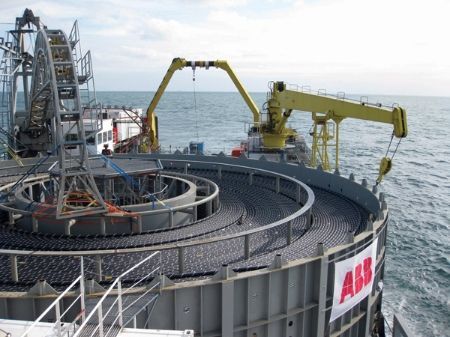
Swiss power technology firm ABB has developed and tested a 525kV underground and subsea high-voltage direct current (HVDC) cable system, which the company claims will make renewable energy installations more efficient and cost-effective.
The technology, which features high-voltage power cables, joints and terminations, will increase the power capacity of cable connections to around 2.6GW from 1GW.
The reach of the lines will be extended to 1,500km, up from less than 1,000km, with transmission losses of just below 5%.
The new extruded cable system offers a 64% increase, when compared to 320kV lines, currently the highest voltage deployed.
The technology, which uses a new polyethylene insulation material, will allow countries and utilities to integrate more renewable energy being generated by distant solar and wind installations.
ABB said that a single pair of 525kV extruded HVDC cables could transmit enough power from giant offshore wind farms for around two million households.
ABB CEO Ulrich Spiesshofer said: "This major technology breakthrough will change the feasibility of renewable energy projects and play a defining role in using underground and subsea high-voltage cables to integrate renewables over long distances."
The company said it will present the system at the Cigré technology symposium in Paris, France, this month.
ABB has commissioned more than 25 DC cable connections and approximately 100 AC cable links globally.
We use cookies to improve your experience. By continuing to use our site, you accept our Cookies, Privacy Policy,Terms and Conditions. Close X